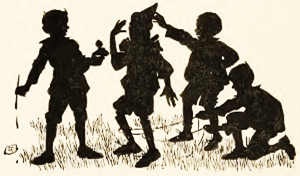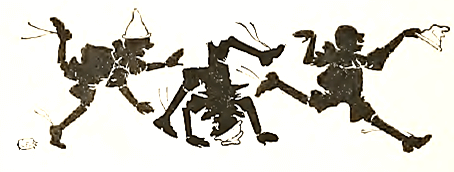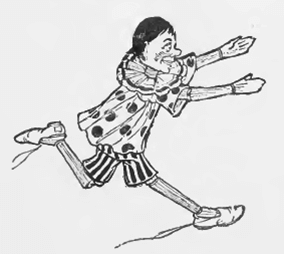Activity 1: Recite the Book Information
- Before and after reading or listening to the story, recite aloud the name of the author, the title of the book, and the title of the chapter.
Activity 2: Narrate the Story
- After reading or listening to the story, narrate the events aloud in your own words.
Activity 3: Recite a Passage from the Chapter
Practice reciting aloud the following passage, with drama and feeling.
- 'We are going to the shore to see the Dog-Fish. Will you come with us?'
- 'No; I am going to school.'
- 'What matters school? We can go to school tomorrow.'
Activity 4: Dictate a Sentence from the Chapter
- Step 1: Instructors write the sentence, and children copy it.
- Step 2: Instructors say the sentence aloud, and children write it.
- Sentence: I am going to school.


